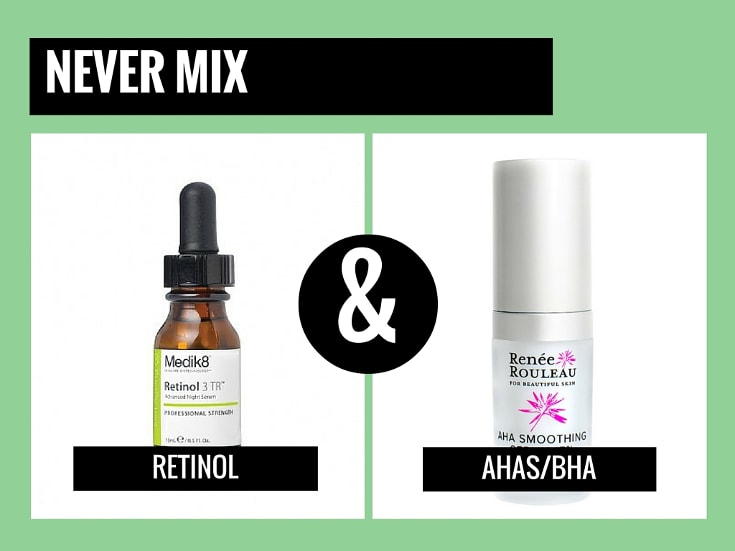Are AHA and retinol the same? Even though both retinol and AHAs have similar anti-aging effects on your skin, they work differently to deliver them. For example, retinol is not an exfoliant while AHAs are. On the other hand, retinol has antioxidant properties.
First, What should you not use retinol with? Retinoid or Retinol and Salicylic Acid
To fight the good fight against acne, you may also use salicylic acid, a beta hydroxy acid (BHA) that increases skin cell turnover, to keep pores clear. But on its own, each can dry out the skin, so together they should be combined with caution.
Can you use AHA everyday? To reduce your risk of irritation, the Cleveland Clinic recommends using AHA products every other day. As your skin gets used to them, you can then start applying AHAs every day.
Second, Can you use AHA every night? Both AHAs and BHAs can be used day or night. Some products are formulated to be used at night as an overnight peel, while others (often serums) are meant to be used in the morning to gently slough off any dead skin cells.
Can I use retinol after exfoliating? Can you exfoliate and use retinol in your routine? The short answer is yes. Both a chemical exfoliant and retinol help to resurface the skin, fade dark spots, clear pores and soften fine lines and wrinkles.
How can you tell if retinol is working?
While prescription-strength retinoids may have an effect in a matter of weeks, it can take up to 6 months for OTC retinols to produce the same results. You may notice a difference in conditions like acne after 12 weeks, but sun damage and signs of aging can take much, much longer to improve.
Do I need to exfoliate if I use retinol?
Because retinol makes your skin more sensitive, you want to make sure you don’t over-exfoliate or irritate your complexion. But you can use your retinol and your exfoliating products together in harmony.
Is it good to apply retinol everyday?
Is it safe to use retinol every day? For most people, yes — once your skin is used to it, that is. That said, there are some people who may not want to use it frequently or at all.
Is AHA better than retinol?
Your Daily Skin Care Regimen
For example, retinol is not an exfoliant while AHAs are. On the other hand, retinol has antioxidant properties. Both ingredients can smooth skin tone and reduce wrinkles, but also provide unique benefits that the other lacks.
Is it OK to use AHA everyday?
To reduce your risk of irritation, the Cleveland Clinic recommends using AHA products every other day. As your skin gets used to them, you can then start applying AHAs every day.
Is retinol or AHA better for wrinkles?
If you want to prevent and address fine lines, wrinkles, and sun damage, retinol is your best choice.” In other words: the mechanisms of action or retinol and glycolic acid are distinct yet complementary.
Is AHA good for wrinkles?
The well-known benefits of AHA’s include exfoliation, moisturization, reduction of fine lines and wrinkles, collagen synthesis, firming and skin lightening.
What can you not mix with retinol?
Don’t mix: Retinol with vitamin C, benzoyl peroxide (BPO) or alpha and beta hydroxy acids, otherwise known as AHAs and BHAs (glycolic acid and salicylic acid). Layering these products one after the other could cause irritation.
When can I stop using retinol?
Key Takeaways
- Retinol is generally safe, but should be used sparingly.
- Discontinue use if you have negative side effects after a few weeks of use and contact your physician to help reassess your skin type and find a solution that will protect your skin barrier .






